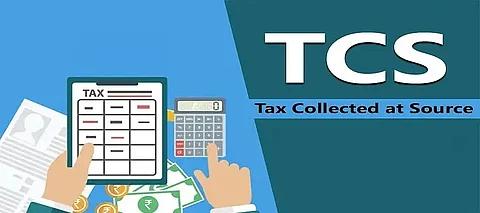

Recently, the Indian government has announced notable changes in Tax Collected at Source (TCS), set to take effect from April 1, 2025. These revisions aim to simplify tax compliance, reduce financial burdens on individuals and businesses, and improve cash flow.
Among the most significant updates: TCS on sales of goods is removed, foreign remittances for education are eased, and strict penalties for delayed TCS deposits are relaxed. Here’s a detailed breakdown of what changes, why it matters, and how it impacts you.
Tax Collected at Source (TCS) is a tax that certain sellers collect from buyers at the time of purchase, which is then deposited with the government.
With the new TCS rules effective from April 1, 2025, the tax system is becoming simpler and more business-friendly.
Until now, businesses had to collect 0.1% TCS on sales exceeding ₹50 lakh in a financial year.
This requirement is now abolished, making it easier for traders and improving their cash flow.
Impact: Businesses no longer need to worry about collecting and depositing TCS on high-value sales, reducing paperwork and compliance costs.
The TCS exemption limit for foreign remittances under the Liberalized Remittance Scheme (LRS) is raised from ₹7 lakh to ₹10 lakh.
If you are sending money abroad for education using a loan from a recognized financial institution, TCS is now completely waived.
Impact: Students studying abroad and families supporting them financially will benefit from reduced tax deductions.
Previously, individuals who didn’t file Income Tax Returns (ITR) faced higher TCS and TDS rates.
This provision is now removed, reducing the tax burden on common taxpayers and small businesses.
Impact: If you missed filing your ITR earlier, you won’t face higher tax deductions on financial transactions.
Earlier, failing to deposit TCS on time could result in imprisonment (3 months to 7 years) along with fines.
Now, no legal action will be taken if the pending TCS is deposited within the stipulated time.
Impact: Businesses get relief from harsh penalties while still being encouraged to meet their tax obligations.
The government has revised TCS rates for different types of transactions to ensure fair taxation.
Detailed TCS rate changes will be announced separately.
Impact: Expect simplified taxation on certain high-value transactions, reducing unnecessary deductions.
These TCS changes mark a major shift toward a simpler and more taxpayer-friendly system. Whether you run a business, send money abroad, or simply make large purchases, these updates will make tax compliance easier and financial planning smoother.
With these reforms, India's tax system is moving toward less red tape, fairer taxation, and reduced financial stress for businesses and individuals alike.